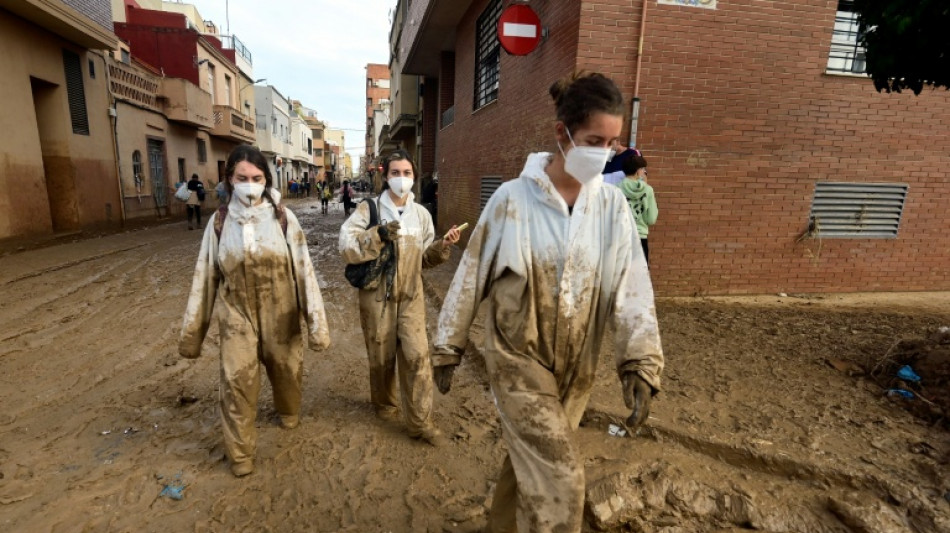

Reeking mud sparks health fears in Spain flood epicentre
The sea of mud and stagnant water submerging Spanish towns more than 10 days after the country's worst floods in decades has sparked a sickening stench and health fears.
"That's the rotten meat," said Toni Marco, pointing to a destroyed supermarket in the devastated town of Sedavi from which a disgusting odour wafted when AFP visited.
The meat was only removed recently, well after the floods cut the refrigerators' electricity supply, added Marco, a 40-year-old employee of a private cleaning company.
The nearby town of Catarroja also remains a mud bath after the October 29 disaster that has claimed 219 lives, with a powerful reek compounding the woes of survivors.
The diversity of matter decomposing under the mud produces a spectrum of smells ranging from the mildly unpleasant to the outright repulsive.
"Each decomposition of an element smells differently," which explains why the odours vary from street to street, said Angel Aldehuela, a 51-year-old firefighter from the southern Seville region.
Dead animals may also lie buried under the mud, he told AFP.
When the mud dries, the organic matter decomposes without oxygen and "that's where those smells we're not used to start to appear," explained Miguel Rodilla, a biologist at Valencia's Polytechnic University.
"There aren't necessarily bodies nearby, but simply organic matter decomposing."
- Smell 'will get worse' -
In scenes reminiscent of the Covid-19 pandemic, rescuers, volunteers and residents have worn facemasks and gloves during the clean-up, while some people have complained of the stink causing headaches and dizziness.
Breathing in the pestilential miasma "isn't ideal for health", but "higher concentrations" of decomposing matter would be necessary to make it toxic, said Rodilla.
Stagnant water can trigger gastrointestinal disorders or pneumonia, Health Minister Monica Garcia told public radio RNE, but she ruled out the possibility of an "outbreak".
The health board of the Valencia region, particularly crippled by the floods, has also reported no outbreak of infectious diseases or a major threat to public health.
Even so, regional health authorities have asked local councils to apply measures to control and prevent the proliferation of mosquitoes and other insects capable of spreading diseases.
Aldehuela warned that the foetid fumes enveloping Catarroja "will get worse, without a doubt", predicting they would linger for up to a week more.
But in towns where the muck has been cleared swiftly, an aroma of bread or fruit has replaced the stench, the head of the army's emergencies unit Javier Marcos said on Friday.
X.Fitzpatrick--NG



